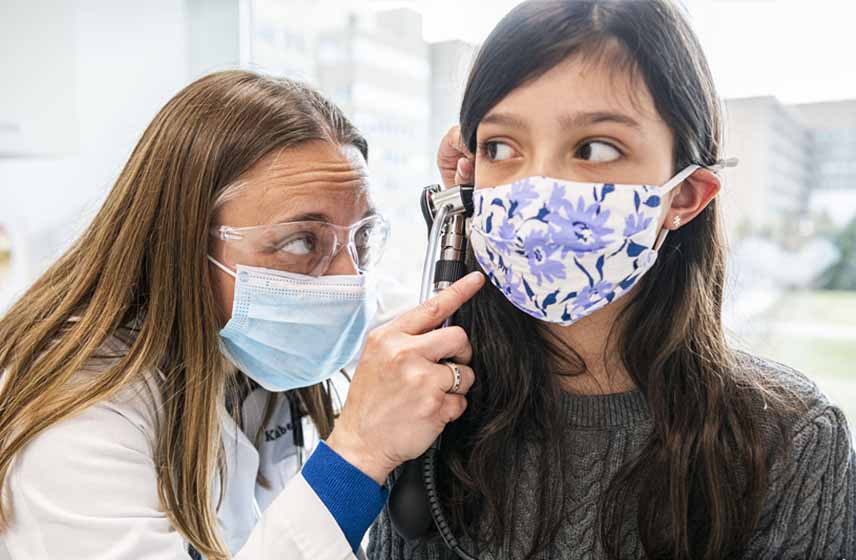Pediatrician advice on managing flu symptoms in children with home care tips
Exploring Typical Therapy Choices Provided by Your Regional Pediatrician for Growing Youngsters
Neighborhood doctors play an important duty in the health and development of kids. They supply a variety of treatment alternatives, from routine inoculations to address preventable conditions, to developing screenings that can recognize very early delays. Nutritional guidance is additionally provided to ensure children preserve balanced diet plans. Nevertheless, there are various other vital facets of pediatric care that parents ought to think about. Understanding these can substantially influence a youngster's overall well-being.
The Importance of Regular Check-Ups
While numerous parents may view check-ups as a mere routine, they play an important role in a kid's general health and wellness and development. Regular exams supply doctors with the possibility to keep an eye on development milestones, assess developing progression, and identify any type of potential health issues early on. These visits allow healthcare providers to perform physical examinations, track critical indicators, and review dietary needs.

Inoculation Timetables and Booster Shots
Vaccination routines are important for ensuring that infants obtain essential vaccines on time, protecting them from various avoidable conditions. As kids grow, school-age immunization needs come to be progressively essential to maintain public wellness requirements. Understanding these inoculation standards is important for moms and dads to assure their youngsters are effectively secured.
Vital Vaccines for Babies
Guaranteeing that babies get important vaccines is critical for their health and wellness and the well-being of the neighborhood. Doctors suggest a collection of immunizations beginning at birth, including vaccinations for hepatitis B, diphtheria, tetanus, pertussis (DTaP), Haemophilus flu type b (Hib), pneumococcal conjugate (PCV13), and suspended poliovirus (IPV) These vaccines shield infants from significant illness that can lead to difficulties or death. The booster shot schedule commonly complies with details timelines, with doses offered at 2, 4, and 6 months of age. Furthermore, the measles, mumps, and rubella (MMR) vaccination is introduced around twelve month. Abiding by these inoculation timetables guarantees that babies construct immunity while contributing to herd resistance, safeguarding the neighborhood versus outbreaks.
School-Age Booster Shot Needs
What immunizations are needed as kids relocate right into school-age child? As youngsters change to school, certain inoculations are important to safeguard their health and the wellness of their peers. The Centers for Illness Control and Avoidance (CDC) recommends that kids get the DTaP (pertussis, diphtheria, and tetanus), IPV (inactivated poliovirus), MMR (measles, mumps, and rubella), and varicella (chickenpox) injections. Furthermore, the yearly flu vaccination is advised. These immunizations are usually carried out in between ages 4 to 6, though some might be offered previously based upon specific wellness demands and neighborhood laws. Doctors play an important role in guaranteeing that vaccination routines are complied with, offering assistance and resources to parents about the significance of keeping children inoculated.
Developing Testings and Evaluations
Very early recognition of developmental delays is essential for reliable intervention, many moms and dads might not be conscious of the significance of regular testings and assessments. Pediatricians utilize developing screenings to review a youngster's growth in various domain names, including physical, cognitive, social, and psychological abilities. These assessments generally occur throughout routine exams and are created to identify any kind of prospective problems early.
Standardized devices and questionnaires help doctors gather details regarding a youngster's advancement, allowing for timely referrals to experts if necessary. Analyses can also give insights into a child's staminas and locations that may call for additional assistance.
Moms and dads are encouraged to take part in these testings actively, as they play a crucial role in their kid's wellness. By participating in developing analyses, parents can ensure that their official site kid obtains the suitable resources and treatments, cultivating a foundation for lifelong discovering and development. Regular screenings contribute substantially to a child's general wellness.
Nourishment and Dietary Advice
Nutritional health plays a significant function in a kid's total development and wellness, enhancing the understandings gained from developmental screenings. Pediatricians concentrate on supplying customized nourishment and nutritional advice to meet the particular needs of growing youngsters. This consists of enlightening moms and dads concerning well balanced diet regimens, stressing the relevance of fruits, veggies, entire grains, and lean healthy proteins.
Doctors often assess a child's growth patterns and dietary habits to determine any type of nutritional deficiencies or unwanteds. They might advise age-appropriate part sizes and healthy snacks to motivate better consuming behaviors. In addition, doctors resolve usual problems such as food allergies and intolerances, directing families on how to take care of these obstacles within a healthy diet plan.
Behavior and Mental Health Support
Understanding that behavioral and emotional health and wellness is crucial for a child's overall advancement, pediatricians are increasingly concentrating on offering extensive support in these areas. They acknowledge that mental wellness problems can manifest early in life and influence a kid's ability to find out, interact socially, and thrive. Doctors typically conduct testings for anxiety, clinical depression, and behavioral problems during regular check outs to recognize prospective issues.
They may use therapy or refer households to psychological wellness professionals when required. Doctors likewise supply sources to aid parents take care of behavioral difficulties at home, such as executing favorable support techniques and developing regular routines. By promoting open interaction, they urge families to go over psychological concerns and promote a helpful setting. This way, doctors play a substantial role in directing kids and their family members towards healthy emotional and behavioral advancement, making certain that children receive the all-inclusive treatment they need to grow.
Monitoring of Persistent and intense Problems
Reliable monitoring of both acute and chronic conditions is an essential element of pediatric care, matching the support provided for behavioral and psychological wellness - well child visit in Robbinsville. Neighborhood doctors are equipped to detect and treat a wide variety of problems, from typical health problems like asthma and allergies to much more complex persistent conditions such as go to this website diabetes mellitus and epilepsy
For severe conditions, timely treatments, consisting of medicines and supportive treatments, are important to advertise and relieve signs recovery. Doctors commonly offer assistance to moms and dads on home treatment and when to look for additional medical focus.
Chronic condition monitoring includes ongoing analyses, tailored therapy strategies, and normal follow-ups to keep an eye on development and readjust treatments as required. Education and learning for households is vital, empowering them to handle their child's wellness efficiently. This complete strategy guarantees that both persistent and severe wellness issues are resolved, fostering total well-being in expanding children.
Regularly Asked Questions
What Should I Give My Kid's Pediatric Consultation?
For a pediatric consultation, one should bring the child's medical records, insurance policy details, a checklist of drugs, any worries or concerns, and a convenience thing for the youngster to aid reduce anxiety during the check out.

Just How Can I Prepare My Child for an Exam?
To prepare a child for a check-up, moms and dads need to clarify the see positively, answer concerns honestly, urge the kid to express sensations, and consider bringing a convenience item to aid relieve anxiety throughout the appointment.
When Should I Look For a Consultation From a Pediatrician?
A consultation from a doctor should be looked for when concerns continue after first examinations, therapy choices appear limited, or a medical diagnosis feels unsure. Parents usually take advantage of extra perspectives to guarantee their youngster's best care.
What Are Indicators My Child Requirements Immediate Medical Focus?
Signs suggesting a youngster needs instant clinical focus include problem breathing, relentless high fever, severe pain, seizures, indications of dehydration, unusual sleepiness, difficulty waking, or any unexpected changes in habits or look that trigger problem.
Just how Do I Choose the Right Pediatrician for My Kid?
Picking the right Pediatrician involves investigating more qualifications, looking for referrals from trusted sources, thinking about workplace area, reviewing communication style, and assessing compatibility with the kid's demands. It is necessary to prioritize comfort and rely on this choice.
Neighborhood doctors play an essential role in the health and wellness and advancement of kids. Examinations promote open interaction in between moms and dads and pediatricians, enabling families to deal with issues and receive professional recommendations tailored to their child's distinct situations. Doctors make use of developing testings to examine a kid's growth in various domains, consisting of physical, cognitive, social, and psychological skills. Doctors concentrate on supplying customized nutrition and dietary guidance to fulfill the details requirements of growing children (hummingbird pediatrics). Understanding that psychological and behavior health and wellness is important for a child's overall growth, pediatricians are increasingly concentrating on offering comprehensive assistance in these areas